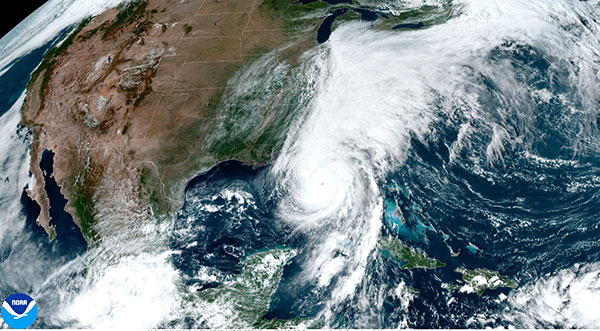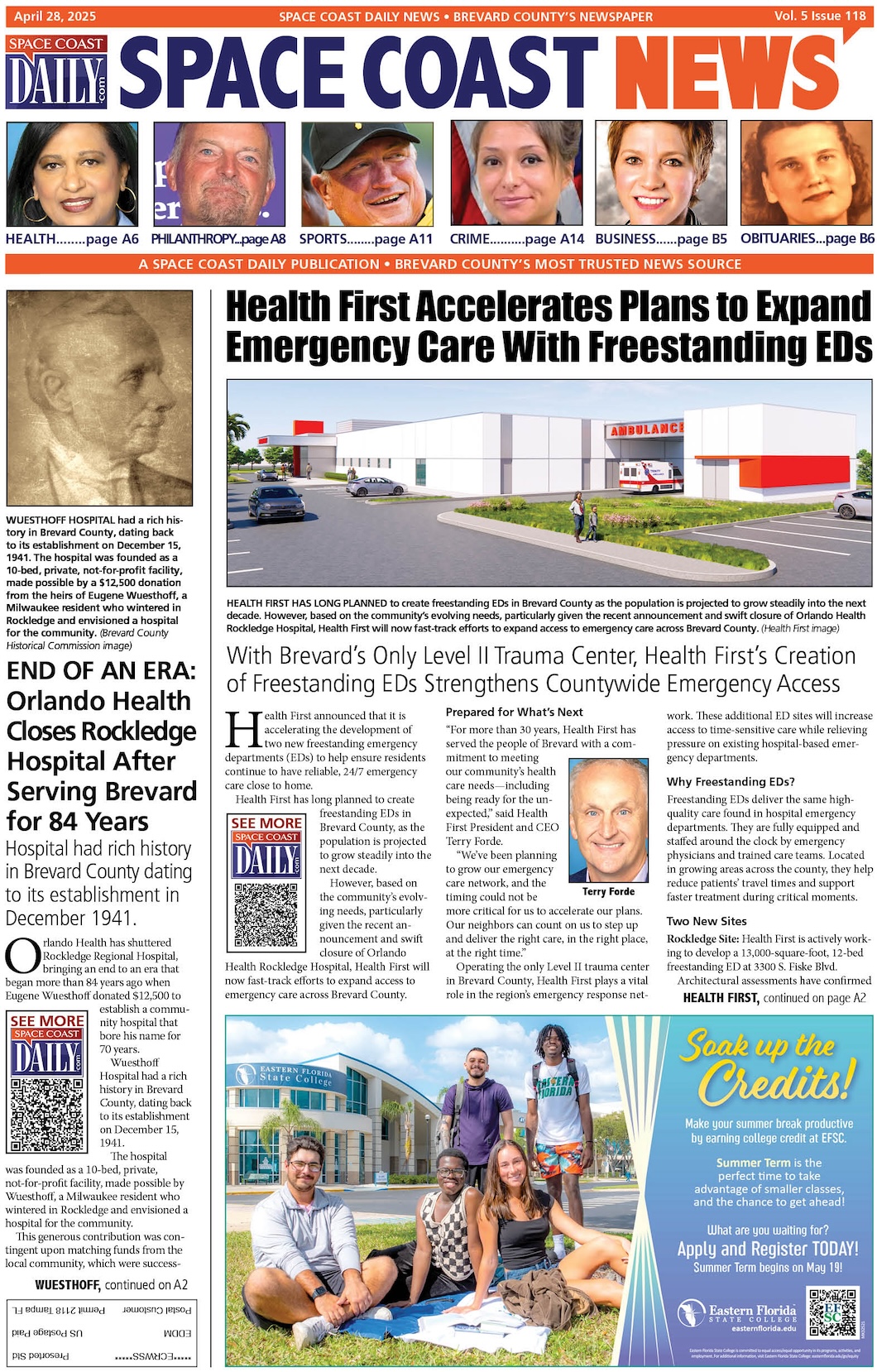WATCH: How to Prepare For Florida Hurricane Season Beginning June 1
By Space Coast Daily // May 2, 2025
Hurricane Season begins on June 1
SPACE COAST DAILY TV: With the 2025 hurricane season here, longtime Meteorologist and Space Coast Daily correspondent Danny Treanor offers some sage advice on how to prepare for the next six months.
BREVARD COUNTY, FLORIDA — With the start of the Florida hurricane season just over one month away, the Florida Department of Emergency Management has issued some reminders about how to best prepare for potential hazards this time of year.
A hurricane is a type of storm called a tropical cyclone, which forms over tropical or subtropical waters. A tropical cyclone is a rotating low-pressure weather system that has organized thunderstorms but no fronts (a boundary separating two air masses of different densities).
Tropical cyclones with maximum sustained surface winds of less than 39 miles per hour (mph) are called tropical depressions. Those with maximum sustained winds of 39 mph or higher are called tropical storms. When a storm’s maximum sustained winds reach 74 mph, it is called a hurricane.

Hurricane Ian , September 2022 Hurricanes originate in the Atlantic basin, which includes the Atlantic Ocean, Caribbean Sea, and Gulf of Mexico, the eastern North Pacific Ocean, and, less frequently, the central North Pacific Ocean. A six-year rotating list of names, updated and maintained by the World Meteorological Organization, is used to identify these storms.
Hurricane Season begins on June 1, and ends on November 30, although hurricanes can, and have, occurred outside of this time frame. The National Oceanic and Atmospheric Administration’s (NOAA) National Hurricane Center predicts and tracks these massive storm systems, which occur, on average, 12 times a year in the Atlantic basin.

Tropical Weather Terms to Know
● Tropical Disturbance – A tropical weather system with organized convection (generally 100300 miles in diameter) originating in the tropics or subtropics.
● Invest – A weather system for which a tropical cyclone forecast center is interested in collecting specialized data sets and/or running model guidance.
● Potential Tropical Cyclone – A disturbance that is not yet a tropical cyclone, but poses the threat of tropical storm or hurricane conditions to land areas within 48 hours.
● Tropical Cyclone – A rapidly rotating storm system characterized by a low-pressure center, a closed low-level atmospheric circulation, strong winds, and a spiral arrangement of thunderstorms that produce heavy rain and squalls.
● Tropical Depression – A tropical cyclone with maximum sustained winds of 38 mph or less.
● Tropical Storm – A tropical cyclone with maximum sustained winds of 39-73 mph.
● Hurricane – A tropical cyclone with maximum sustained winds of 74 mph, or greater.

Common Weather Threats from Tropical Cyclones
● Storm Surge – A hurricane can produce destructive storm surge, which is water that is pushed toward the shore by the force of the winds. This advancing surge combines with the normal tides to inundate normally dry land in feet of water. The stronger the storm, the higher the storm surge.
● Inland Flooding – In the last 30 years, inland flooding has been responsible for more than half the deaths associated with tropical cyclones in the United States. High Winds – Hurricane-force winds can destroy poorly constructed buildings and manufactured homes. Debris such as signs, roofing material and small items left outside become flying missiles in hurricanes.
● Tornadoes – Hurricanes can produce tornadoes that add to the storm’s destructive power. Tornadoes are most likely to occur in the right-front quadrant of the hurricane.
Make A Plan:
● Complete a Personal Assessment Make a list of your personal needs and your resources for meeting them in a disaster environment.
● Get Educated, Get Informed Know the specific hazards that threaten your community (hurricanes, tornadoes, wildfires, etc.) Learn about community disaster plans and community warning systems. Learn your community’s evacuation routes.
● Prepare an Emergency Kit Stock enough supplies to last every individual in your home at least 7 days Include items for your pets in your emergency kit Dont forget to include nonperishable food, water, batteries, and medications
● Know Your Home, Know Your Zone Visit FloridaDisaster.org/Know to learn what evacuation zone you live in Know your home’s ability to withstand hurricane-force winds
● Make a Plan for Your Pets Include medications, vet paperwork, collars with ID tags, and sturdy leashes in your kit Don’t forget to pack your pet’s favorite toys and comfort items NEVER leave your pets behind
● Utilities – Know how and when to turn off water, gas and electricity at the main switches and valves Keep any tools you will need near gas and water shut-off valves Turn off utilities only if you suspect lines are damaged or if local officials instruct you to do so
● Safety Devices – Be sure you know where your fire extinguishers are located and how to use them Install smoke alarms on every level of your home, especially near the bedrooms Several times a year, test your smoke alarms to ensure they are working properly Insurance Coverage C
For more information CLICK HERE.















